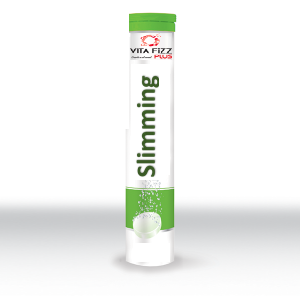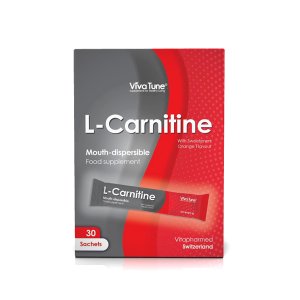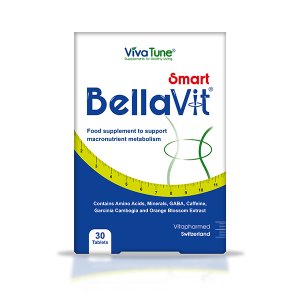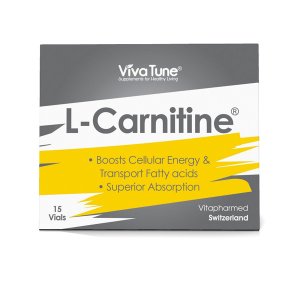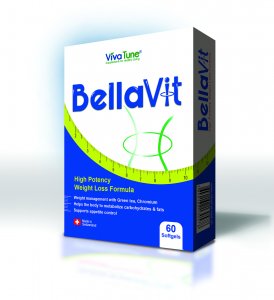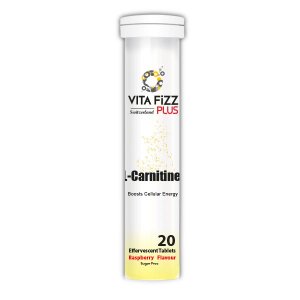Could too little biotin hinder your weight-loss effort?
Probably not. Biotin is a water-soluble vitamin needed by the body. It contributes to the metabolism of nutrients and helps determine what genes your cells express. Enzymes involved in making fat, making glucose and breaking down amino acids require biotin. High doses of biotin may help people with high triglycerides, blood glucose levels and insulin insensitivity. But evidence does not support use of biotin for weight loss.
Dietary Recommendations and Food Sources
Healthy people who eat a well-balanced diet rarely develop a biotin deficiency. Smokers, people who take certain types of medications and those who eat lots of raw eggs are at greater risk for developing a biotin deficiency. Some genetic conditions reduce a person’s ability to absorb dietary biotin, but these are detected early in life. Adults need 30 micrograms a day of biotin. Biotin is available in a number of foods including whole grains like whole-wheat bread, nuts, fish, pork, fruits and vegetables, and cooked eggs.
Biotin and Metabolism
The body turns excess calories into fat. The first key step in the process uses an enzyme that contains biotin. The enzyme is called acetyl-coA carboxylase, or ACC. Decreased ACC enzyme activity may result in reduced synthesis of fat for storage as triglyceride and greater use of fat as an energy source, according to the results of a mouse study published in 2007 in Proceedings of the National Academy of Sciences. Biotin is also needed by enzymes that break down amino acids. An enzyme that makes new glucose to maintain blood sugar levels when you need energy but do not have enough dietary carbohydrate available also requires biotin. However, evidence does not support the use of dietary or supplemental biotin to help with weight loss.
Biotin and Blood Lipids
Overweight and obesity are associated with elevated triglycerides -- fat -- and LDL -- the “bad cholesterol” -- both of which are risk factors for heart disease. High doses of biotin combined with chromium resulted in reduced triglyceride levels in a subset of diabetic patients, according to a research study published in Diabetes Technology and Therapeutics in 2006. In 2006 in the journal Biomedicine and Pharmacotherapy, researchers demonstrated that nondiabetic and diabetic participants with high triglycerides at the start of the study had lower triglycerides and a precursor to LDL called VLDL after taking biotin. Still, at this time, biotin is not a recommended treatment for high cholesterol or high triglycerides. Discuss health-related concerns and supplement use with your health care provider.
Biotin, Chromium and Blood Sugar
Obesity and high blood sugar are modifiable factors that increase the risk of Type 2 diabetes. In the British Journal of Nutrition in 2013, researchers revealed that biotin improved blood sugar and overall insulin sensitivity in diabetic rodents. A study published in Diabetes Technology and Therapeutics in 2006 showed that high-dose biotin and chromium supplementation used in conjunction with oral medication improved blood sugar control in diabetic participants previously unable to regulate their blood sugar levels with medication. Other researchers found that biotin did not improve blood sugar control of diabetics or nondiabetics. Discuss your health care concerns and supplement use with your health care provider. Biotin and chromium are not recommended supplements for high blood glucose.
List of Biotin-Rich Foods
Biotin, also known as vitamin H, forms a part of the B complex group of vitamins. Like other B vitamins, biotin helps your body turn food into fuel for energy. This water-soluble vitamin also assists in the metabolism of fats, carbohydrates and amino acids, the basic building blocks of protein. As a result of being water-soluble, biotin is not stored in your body. Intestinal bacteria can manufacture biotin, however. You can meet your daily biotin requirement, which is 30 micrograms per day, by eating biotin-rich foods.
Yeast, Grains and Nuts
Brewer's yeast and nutritional yeast are good dietary sources of vitamin H. A 7-gram packet of yeast provides 1.4 to 14 micrograms of biotin, according to the Linus Pauling Institute. Whole grains and whole-grain products contain respectable amounts of biotin. Eating a slice of whole-wheat bread will give you between 0.02 and 6 micrograms of vitamin H. Nuts such as almonds, peanuts, pecans and walnuts are other sources of biotin.
Eggs and Dairy
Eggs, especially the yolks, have one of the highest concentrations of biotin, with one large cooked egg offering 13 to 25 micrograms of biotin. Raw egg whites, however, contain a protein called avidin that prevents the absorption of biotin in your body, the University of Maryland Medical Center reports. Dairy products such as milk and cheese are natural sources of this vitamin. Cheddar cheese provides 0.4 to 2 micrograms of biotin per 1-ounce serving.
Meat and Fish
Liver contains high levels of biotin, with 27 to 35 micrograms of biotin in 3 ounces of cooked liver. Other organ meats such as kidney store significant amounts of biotin. Three ounces of cooked pork provides about 2 to 4 micrograms of biotin. Biotin can also be found in fish such as salmon and sardines. Cooked salmon has 4 to 5 micrograms of biotin per 3-ounce serving. The Linus Pauling Institute states that a 3-ounce serving of meat is the size of a deck of cards.
Fruits, Vegetables and Legumes
Most fresh vegetables contain biotin, says the Colorado State University Extension. One cup of raw cauliflower will provide you with 0.2 to 4 micrograms of biotin. One whole avocado has about 2 to 6 micrograms of this water-soluble vitamin. And a cup of raspberries supplies 0.2 to 2 micrograms of biotin. Soybeans and other legumes such as black-eyed peas and beans contain biotin. Bananas, nut butters and mushrooms are other biotin-containing foods.
https://www.livestrong.com/article/437532-a-list-of-biotin-rich-foods/
https://www.livestrong.com/article/3403-need-vitamin-h-biotin-/

